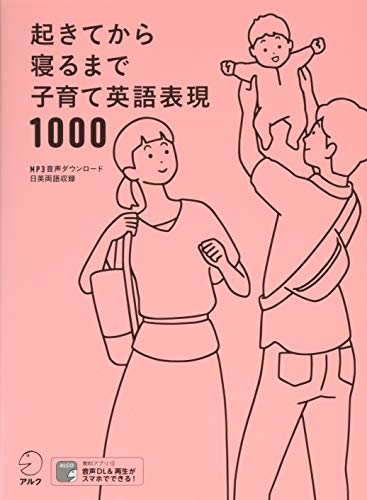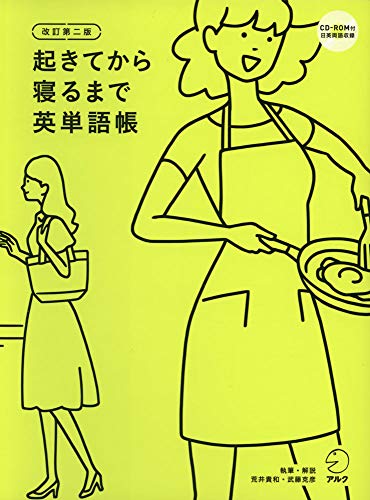
近年、日本では「あざとい」が悪い意味だけでなく、いい意味でも使われるようになってきましたが、海外では そもそも どのように考えられているのでしょうか?英会話講師のサマー・レインさんが、日本・海外のゲスト3人(Koさん/Kyokaさん/Takさん)と共にオンライン討論会を行いました。今回は、日本と海外の「人に好かれるタイプ」について話し合いました。
▼前編はこちら!
ej.alc.co.jp日本と海外で「人に好かれるタイプ」は違う?
Kyoka: I personally think that in America, they take sexy as a way of gaining interest from other people. Japan, it’s “cute.” For me, in Korea, it’s like both . And then , other countries each in, is different .
Tak: (4)Back in the day, this girl was azatoi to me, and I thought she liked me. I thought she was being open, but that wasn’t the case . It’s hard to misunderstand that. I think we all like to think that open people are more popular ? like “moteru.” And I think that’s true, obviously. And it’s ideal. But that’s not always the case . (5)Objectively, people (6) go for the (7)manipulative ones sometimes ? guys and girls alike.
Summer: What a popular type or a likable person is in a (8) context between friends or in a workplace ? just, not only about the cute (9) aspect of azatoi, but maybe like a calculative person or a person who is clever in their interactions with other people in general ? how is that different in Japan and the U.S.?
Tak: I lived in (10)Vancouver, in Canada, for about 20 years, and I’ve been in Tokyo about 10. It doesn’t really seem like there’s much of a difference between the two cultures (11)in regards to like who is most liked by other people. One common feature that I found between the friends that I liked to (12) hang out with back in Vancouver and here, and people who seem to have a lot of friends is, like, people who can (13) tease each other in Japanese would be “karakau.” You can make jokes about the other person. And if they accept it, and if they’re cool with it, that’s how a lot of people (14)gauge their distance between from] [the other person, I think.
京香: 個人的には、アメリカでは人の気を引くためにセクシーさを使うと思います。日本では「かわいさ」です。私としては、韓国ではその両方です。それで、ほかの国々ではそれぞれ違うのです。
タク: ずっと前、僕に対してあざとい女の子がいて、自分はその子に好かれていると思っていました。僕は彼女がオープンな人だと思っていましたが、そうではなかったのです。そういう誤解をするのはつらいですね。僕が思うに、人は皆、オープンな人がより人気があって―「モテる」と思いたいのです。もちろんそれは正しいでしょう。そして理想ですよね。だけどいつもそうとは限りません。客観的に、人は操るのがうまい人に引かれることがあるのです―男性・女性問わずですね。
サマー: 友達の間、または職場といった状況での人気者タイプや好かれる人はどうでしょう―あざといのかわいい面に限らず、計算高いような人や、一般的に人とのやりとりが巧みな人などについて―日本とアメリカでどう違うでしょうか?
タク: 僕はカナダのバンクーバーに約20年住んで、東京に10年ほど住んでいます。どういう人がいちばん人に好かれるかについて、二つの文化の間にはそんなに違いはないような気がします。僕が見つけたある共通点は、バンクーバーに戻ってもここ日本でも僕が一緒に過ごしたい友達だとか、友達がたくさんいるような人は、例えば、お互いにからかい合える人なのかなということで、日本語で「からかう」ですね。相手について冗談を言えるのです。相手がそれを受け入れて、そして構わないとなる かどうか が、多くの人が相手との距離を測るやり方だと思います。
(1)versus ~ に対して (2)aura オーラ、雰囲気 (3)give off~ ~を発する (4)back in the day ずっと前に (5)objectively 客観的に (6) go for ~ ~が好みである (7)manipulative 巧みに操作する (8) context 状況、背景 (9) aspect 面、側面 (10)Vancouver バンクーバー ★カナダ、ブリティッシュコロンビア州の都市。 (11)in regards to ~ ~ に関して (12) hang out with ~ ~と一緒に過ごす (13) tease ~をからかう (14)gauge ~を測る、~を見定める
日本で「空気を読む」のにひと苦労
Slowly after losing friends over and over again, I started to understand that people were s?thinking things but not telling them to me, and I had to s?be able to (17) figure that out. As an American, I was so used to people just telling me, “This is how I feel. I don’t like what you’re doing,” or “I don’t wanna to do that.” But, in Japan, they would say, “Oh, you know, I’m not sure ,” or something like that. And I couldn’t (18) interpret that as a no . (It) Took me some time to sort of build the skill of “kuuki wo yomu.”
One thing I just since , it’s interesting, ’ cause I was in Japan for 10 years, so like, I think that I became very Japanese during that time. I absorbed some Japanese values. And then I moved back to the States three years ago, in my late 20s, I had already become very Japanese. And then Americans kind of (19) overwhelm me now. Ha-ha. Because a lot of them are very friendly, and very personal. I mean , you don’t even know them, you can have just met someone, and they’ll tell you very, very personal things about themselves, without you even encouraging that, without asking any questions, you know?
I think there’s definitely good and bad things about that. You can really (20) get to know someone very, very quickly, (21) whereas in Japan, it might take you quite a long time to become, depending on the person, it might take you a long time to be very friendly, and know about the dark side of the person’s life and things like that. Whereas in the States, sometimes you can find it out within the first five minutes of meeting someone.
Ko: It’s definitely , so , like, kind of common , in the United States, but also there are a lot of different types of people, and there are definitely (22)introverted people as well , and people who’d prefer not to talk in an elevator or start a conversation on the bus or some
public transportation.
Tak: I’ve lived in the States for a little bit, too. A lot of, a lot more shy people in Canada, than in the States, I felt like. I used to go to school in (23)Boston, people would just (24) come up to you and talk to you at the (25) crosswalk while you’re like waiting to cross the street. That doesn’t really happen that much in Canada.
友達を一人、また一人と失ってだんだんわかってきたのは、人は何か考えていてもそれを私には言わないということ、そして私はそれ(考え)を解読できなければならないということでした。私はアメリカ人として、人が「私はこう思う。あなたのしていることが気に入らない」とか「それはしたくない」と私にはっきり言ってくることに、あまりにも慣れ過ぎていました。でも日本では、人は「ああ、そうだね、どうかな」などのように言います。そして私はそれを「いいえ」だと解釈することができませんでした。この「空気を読む」技術を身に付けるのに少し時間がかかったのです。
ちょっと以前に面白いことがあって、というのも、私は日本に10年いて、その間にとても日本人ぽくなったと思います。日本的な価値を吸収したのです。そして3年前、20代後半でアメリカに戻り、私はもうすっかり日本人のようになっていました。そして今はなんだかアメリカ人に圧倒されるのです。ハハハ。というのも、彼らの多くはすごくフレンドリーで、とても個人的です。つまり、その人のことなんて知らなくて、会ったばかりの人で、その人が自分に関する本当にすごく個人的な話をしてくるのです、そう仕向けたわけでもなく、何か尋ねたわけでもないのに、ですよ?
それには当然よい面と悪い面があると思います。あっという間にその人のことを知ることができますが、その一方で日本では、人にもよりますがけっこう長い時間がかかり、ごく親しい仲になって、その人の人生の暗い面のようなことについて知るには長い 時間がかかる かもしれません。アメリカだと、会って5分もたたないうちに知ることもあります。
コウ: 確かに(カナダも)アメリカと似た感じですが、すごくいろいろなタイプの人がいますし、もちろん内向的な人だっています、エレベーター内で人と話したがらない人や、バスとか公共交通機関で会話を始めたくない人もいます。
タク: アメリカにも少しの間住んでいたことがあります。アメリカと比べてカナダの方が、内気な人がずっと多いような気がしました。ボストンの学校に通っていましたが、横断歩道で道を渡ろうと待っているようなときに、人がちょっと寄ってきて話し掛けてきます。そういうのはカナダではあまりないですね。
(15) over and over 何度となく (16)piss ~ off ~を怒らせる、~をいらいらさせる (17) figure ~ out ~であるとわかる (18) interpret A as B AをBと解釈する (19) overwhelm ~を圧倒する (20) get to know ~ ~と知り合う (21) whereas その一方で (22)introverted 内向的な (23)Boston ボストン ★アメリカ、マサチューセッツ州の州都。 (24) come up to ~ ~に向かう (25) crosswalk 横断歩道
環境によって人気者のタイプは変わる?
The reason that they were so (5)attractive was because, (6)first of all, they were good at sports, so you have a lot of teammates, so it’s easy to make friends there. And the people who were most popular were often (7) physically attractive, they were (8)fashionable. And they were often of higher social classes.
But I would say that outside of school, those qualities definitely don’t make you popular anymore, right ? Uh, it gets very different when you’re in a work context , um, what kind of person becomes likable. And I would say, (9)from a work perspective, (it’s) people who have a sense of humor, people who are easy to (10)get along with , more friendly.
Kyoka: When I used to live in America, my environment was very different . We watched the movies that were like (11)jocks are cool people and the cheerleaders are the hot people. At the end, I looked around at my school, realizing, “Wait, where’s that in my school? Why isn’t the jocks the cool people?”
Ko: I agree with that. My situation was similar to Kyoka’s, I guess. I didn’t really see (12)cliques, like you do see in movies. Everyone was mixed. There were (13) sporty people, (14)artsy people, (15)geeky people all in the same group.
Tak: We’re, we’re talking about azatoi now like it’s a new (16) phenomenon , but I think it’s always been there, but we now have a word for it, so we have a way to express these ideas. And maybe that’s why it’s just (17)coming to the surface now ? is because we have those words, and it’s more (18) prominent all over the media and stuff . Culture’s changing. The (19) fundamental want of being liked and (20)accepted hasn’t changed, obviously. And it’s just, being azatoi or burikko, is just one way of, of trying to get accepted into a larger community.
彼らがどうしてそんなに人を引き付けたのかというと、まずはスポーツが得意で、(スポーツでは)チームメートが多いから、簡単に友達ができますよね。それでいちばん人気のある子たちは、しばしば見た目が魅力的で、おしゃれでした。それと、彼らは上流階級ということが多かったですね。
けれども学校外となれば、そういう性質によって人気者になるとは限らないですよね?仕事の環境に入れば、どんな人が好かれるかはまったく違ってきます。仕事の観点から言うと、ユーモアのセンスがあって、容易に人とうまくやっていけて、親しみやすい人でしょうね。
京香: 私がアメリカに住んでいたときは、環境はまったく違いました。映画を見ると、運動部員とかかっこいい子とかチアリーダーとかイケてる子がいました。(映画が)終わって自分の学校を見回して、「ちょっと待って、うちの学校のどこにいるの?なんで運動部員たちがイケてないの?」と感じました。
コウ: わかります。僕も京香さんと似た状況だったと思います。映画で見るような派閥はあまり目にしませんでした。みんなが混ざっていたのです。スポーツ好きな子やアート系の子やオタクっぽい子が、みんな同じグループにいました。
タク: 僕たちは今、あざといについて新しい現象のように話していますが、これはずっと存在していて、でも今これを表す言葉があることで、こういった概念を表す手段があるのだと思います。たぶんそれが理由で、今、表面化したのではないかと―私たちには言葉があるから、それでメディアなんかでも取り上げられて、より目立つようになったのです。文化は変わりつつあります。(でも)好かれたいとか受け入れられたいっていう根本的な欲求はもちろん変わっていません。そして、あざといやぶりっこであることは、より広いコミュニティーで認められようとするやり方の一つにすぎないでしょう。
(1) schooling 学校教育 (2) up to ~ ~に至るまで (3)cheerleader チアリーダー (4)football player アメリカンフットボール選手 (5)attractive 魅力的な、人を引き付ける (6)first of all まず、第一に (7) physically 身体的に (8)fashionable 流行の、おしゃれな (9)from ~ perspective ~の観点からすれば (10)get along with ~ ~と仲良くする (11)jock 運動選手、運動部の男子 (12)clique 派閥、グループ (13) sporty スポーツ好きの (14)artsy 芸術家気取りの、芸術志向の (15)geeky オタク系の (16) phenomenon 現象 (17) come to the surface 表面化する (18) prominent 目立つ (19) fundamental 根本的な (20)accepted 受け入れられた
後編はこちら!
ej.alc.co.jp特集「モテ英語のルール10」をEJ6月号でチェック!
翻訳:吉田章子
日常生活にまつわる英語力を強化したい人におススメの参考書はこちら!


サマー・レイン(Summer Rane) アメリカ、シアトル出身。早稲田大学卒業後、東京大学大学院で研究を行い、現在はスタンフォード大学大学院言語学博士課程在籍。10年以上の英会話講師としての活動を基に、英語教材の執筆や、YouTubeで英会話コンテンツを配信中。
「サマー先生と英会話!」 https://www.youtube.com/channel/UC91qteXE1f8puKS8lEBRUhw
「サマー先生のなりきり英語音読」 https://www.youtube.com/channel/UCZMf6bG2KyIgr8v_UylBITg
boocoで読める!アルクの新刊、続々登場
語学アプリ「booco」なら、アルクのベストセラー書籍200タイトル以上が、学習し放題!
「キクタン」などアルクの人気書籍800冊以上が音声対応。「読む」に対応した書籍では、本文と音声をスマホで手軽に利用できるほか、一部の書籍では、学習定着をサポートするクイズ機能で日々の復習や力試しも可能です。さらに、Plusプランに加入すれば200冊以上の書籍が学習し放題に!
boocoの「読む」機能では、次のような使い方ができます。
① 学習したいページを見ながら音声を再生できる
② 文字サイズや画面の明るさを調整できる
③ 書籍内検索ができる
※ これらの機能には一部の書籍が対応しています。

▼「booco」の無料ダウンロードはこちらから








